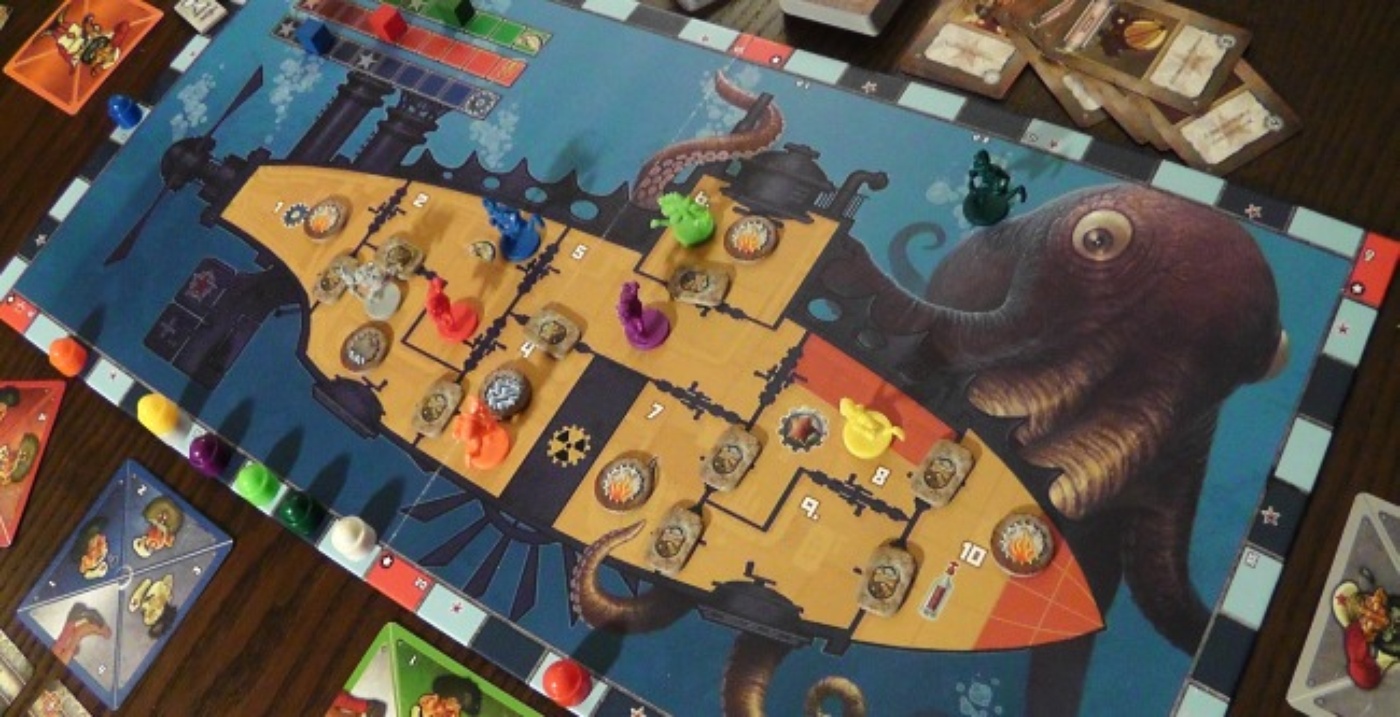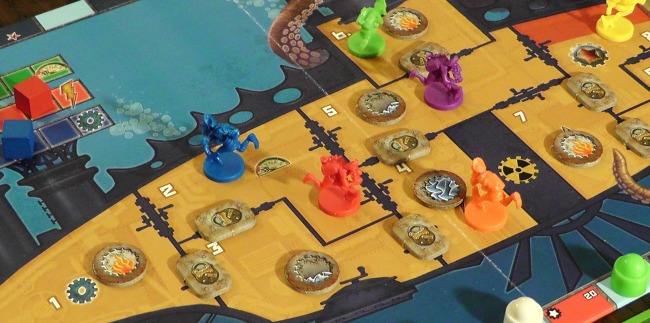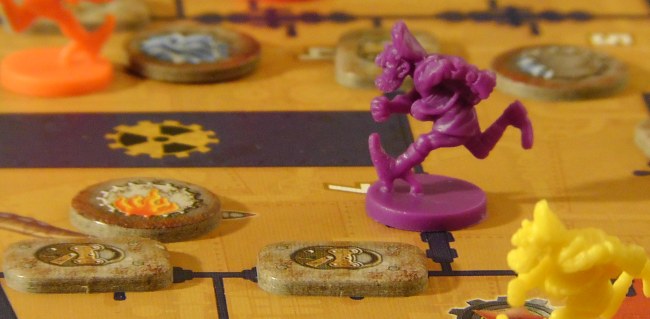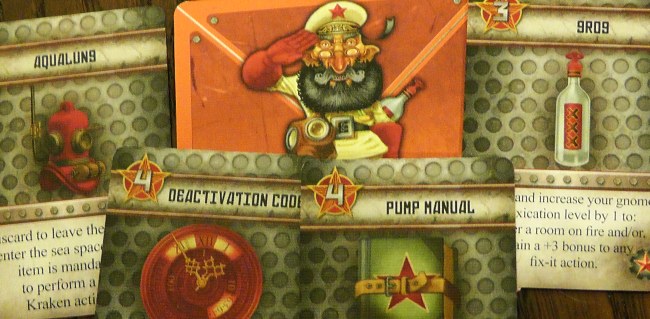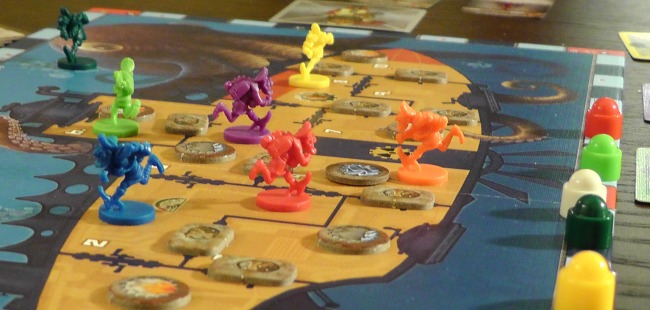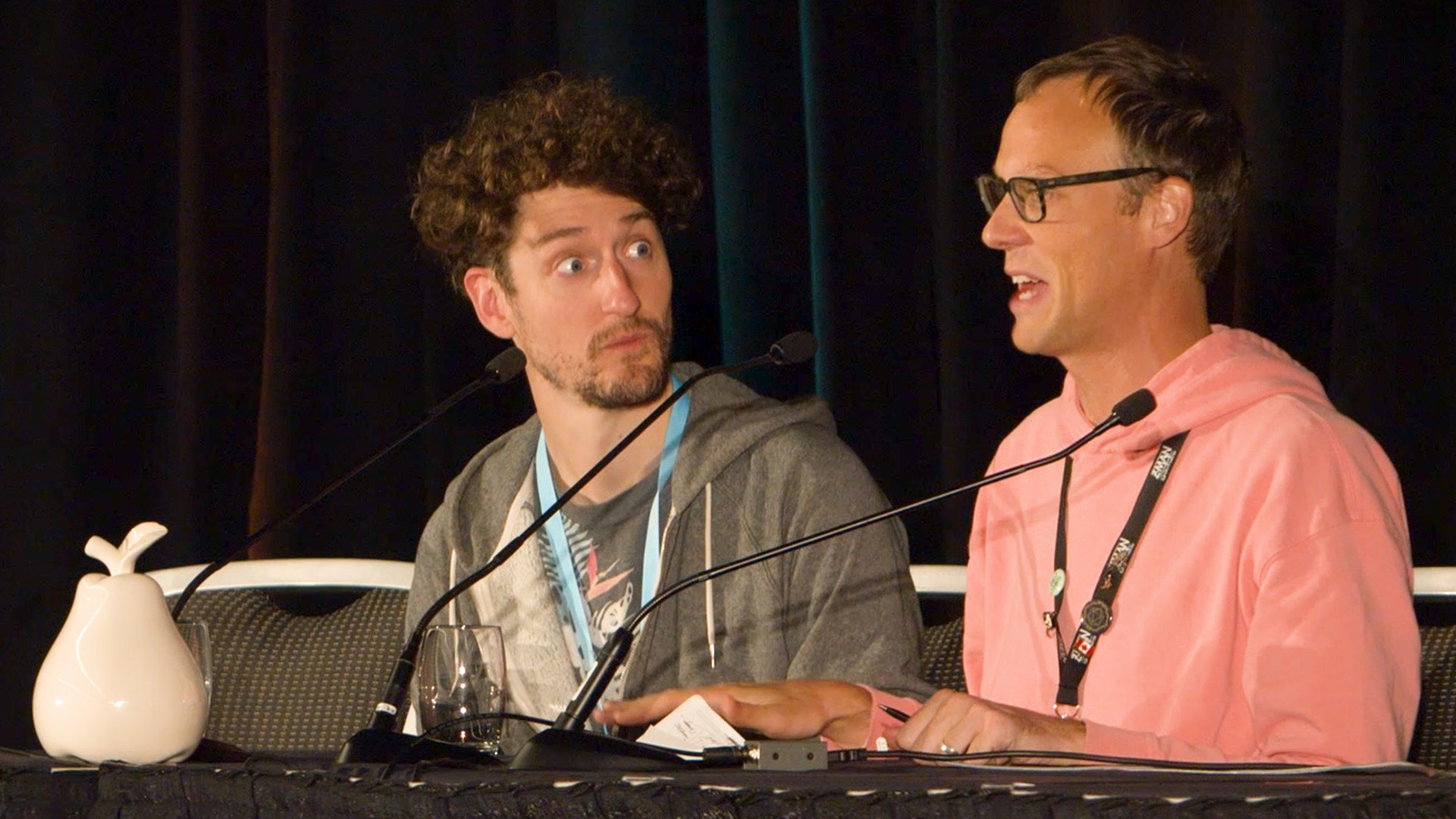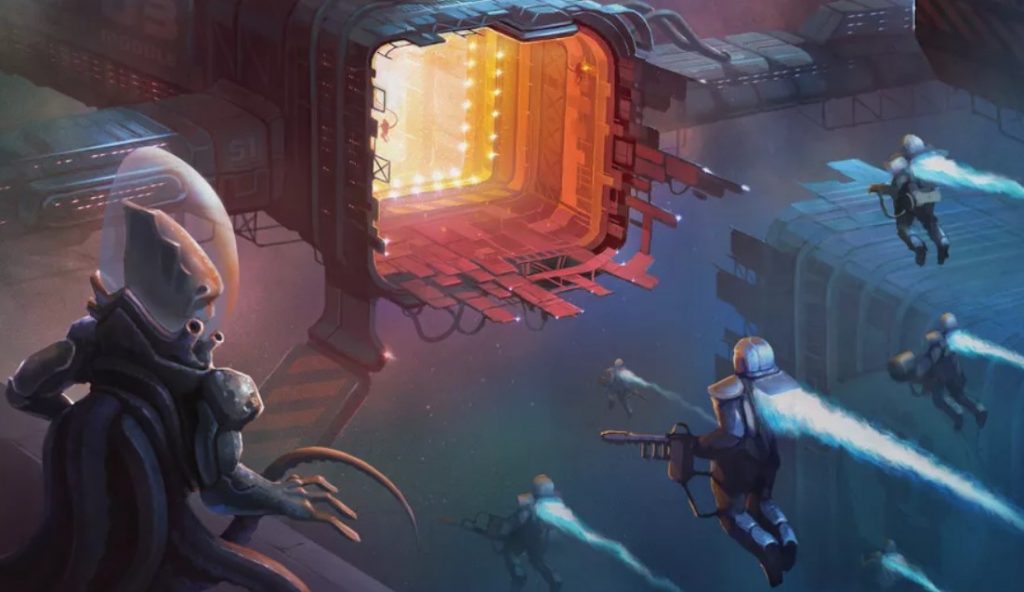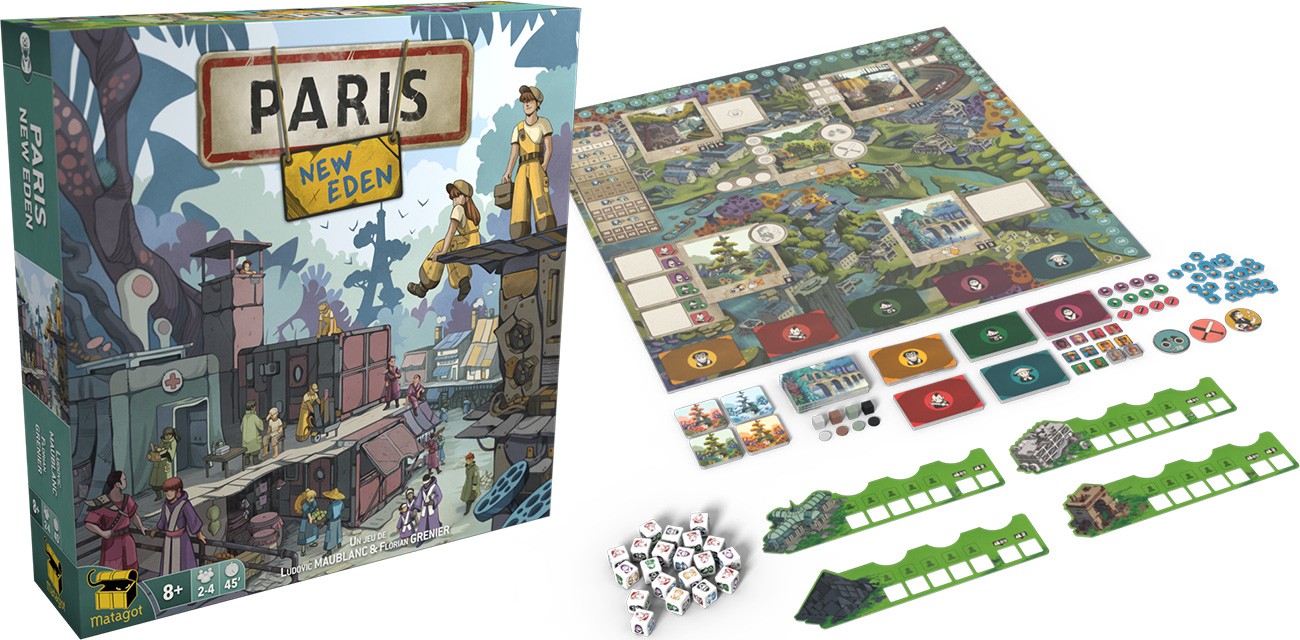Quinns: Myself and Paul don’t talk much about how Shut Up & Sit Down’s episodes are made, for much the same reason that we don’t talk about times when we’ve fallen over while trying to climb stairs two at a time. We have, in the past, spent whole afternoons thinking we were turning the camera on when we were really it off, resulting in hours of captivating footage of our crotches floating around rooms with the alien purpose of jellyfish.
So we find a kindred spirit in Red November, a little co-operative game about Stuff Going Wrong. Up to eight players act as the Gnome crew of a submarine so fantastically broken that you won’t see a problem with downing entire bottles of grog, because it grants the courage you need to put out fires. You won’t see a problem with swimming outside to battle a squid, because the oxygen pumps were failing anyway. And you won’t see a problem with flooding the ship, because it puts out fires.
Wait. Why did you start drinking again?
Paul: There aren’t many rules to learn here, which is handy since the very moment the game starts your submarine begins falling to pieces. Leaks appear everywhere, bulkheads wedge themselves shut and nuclear missiles attempt to launch from closed tubes.
All you need to do is survive this sunken shambles for one hour, until help arrives. To this end, imagine spinning plates on a rocking, bucking submarine. Welcome aboard Red November, the only board game in existence where you can be drunk, drenched and drowning andthink you’re doing a decent job.
Quinns: Each gnome’s turn is broken into four parts, the first two bad, and the last two catastrophic. Seaman Paul! I’ll cover the first two, you cover the last!
Paul: What?
Quinns:Good! Part one of your turn is movement. You can run anywhere on the submarine, but opening each bulkhead takes one minute, as does wading through a flooded room. Is this a problem? Surely not.
Except part two of your turn sees Red November’s central mechanic emerge, with a grin like the moon, into the ship’s flickering lights. When you arrive at the site of a problem (a dead engine, a burning supply cupboard) you have to declare how many minutes you’ll spend trying to fix it, and then you have to try and roll equal to or under this number on a ten-sided dice. Fail, and all that time is 100% wasted.
Paul: See? We told you it was simple. Just put ten minutes’ worth of time into an action and you can’t fail.
But things happen on your submarine as time passes. As each player tracks the time they spend along the outside of the board, their token passes over stars. Each star means you have to draw cards from an event deck to see what happens next. That’s every time every player’s token passes one of these stars. You’ll pass three in ten minutes, so if you spend that long fixing the reactor, that means three other things will go wrong. A pipe bursting. A fire spreading. A kraken nibbling.
So you see, what you really want to do is spend as little time as possible fixing problems. It’s a bit like racing against a clock whose hands move when you move. A clock that sneezes problems at you.
So it should be clear that every sailor needs to be working as hard and fast as a hydraulic piston. Good thing guzzling booze cards lets you work harder and faster! Except the last thing you do on your turn is check whether you pass out, and if you do slip into the soothing bosom of Lady Booze then you’re out cold for a whopping ten minutes. Whereupon you wake up as drunk as you were before.
Quinns:Which is all part of the FUN! The game is one of everyone around the table frantically putting their heads together, hammering out schemes and probabilities that sound seductive in their simplicity. Like getting drunk.
“The engine’s failing! And we don’t have time to fix it! …and it’s on fire!”
“It’s fine! I’ll down this bottle and try putting the fire out with my bare hands, which will probably work, meanwhile if you hit the supply room you might find the engine manual, then maybe you’ll be able to fix the engine before the submarine sinks any lower and we’re all turned into spam.”
“Of course! What could possibly go wrong!”
“The supply room just caught fire!”
“Shit!”
Then the first guy will down his grog, try putting out the fire in the supply room only to fail, pass out and immediately die of smoke inhalation. But with only 15 minutes left to go, the surviving crew might pull through…
This seat-of-your-pants action is… well, it’s the strength of Red November. Most co-operative games (Ghost Stories, say) offer a very rich challenge, and learning to master it is a long-term appeal. Here? You’re flitting around like a burning bird, only ever staring individual problems and probabilities in the face. Which is fun! And you’ll giggle and tremble and shout your way through your first few games.
But let’s put it this way. The reason to like Red November is that it succeeds at being a light bit of fun. My problem with it is that it only sets outto be a light bit of fun. We recommend so many incredible, astonishing, surprising creations on this site. Red November plays like a surly teenage genius. There’s intelligence and humour here, but it’s just so… content with the bare minimum. It’s just a bit damp.
Paul:It’s more of a minisub than a nuclear beast.
Quinns: Sure.
Paul: Again, we told you it was simple. Once you grasp the concept and dive in, the game has already shown you pretty much everything it has to offer and, while it’s a lot of fun, it’s also a lot of the same thing. Your second game will likely resemble your first.
And so we can’t really recommend you buy it unless you absolutely demand another co-op game, or if you really like the idea of a little undersea calamity. And if you do? Well, at least it’s minisub size is reflected in its compact cost.
Quinns: You’re a compact cost.
It’s a shame. I could do with a game of everything going wrong on a ship. Then again, that’s Space Alert, isn’t it?
Paul:Oh no. Are we playing that again? Pass the grog.

